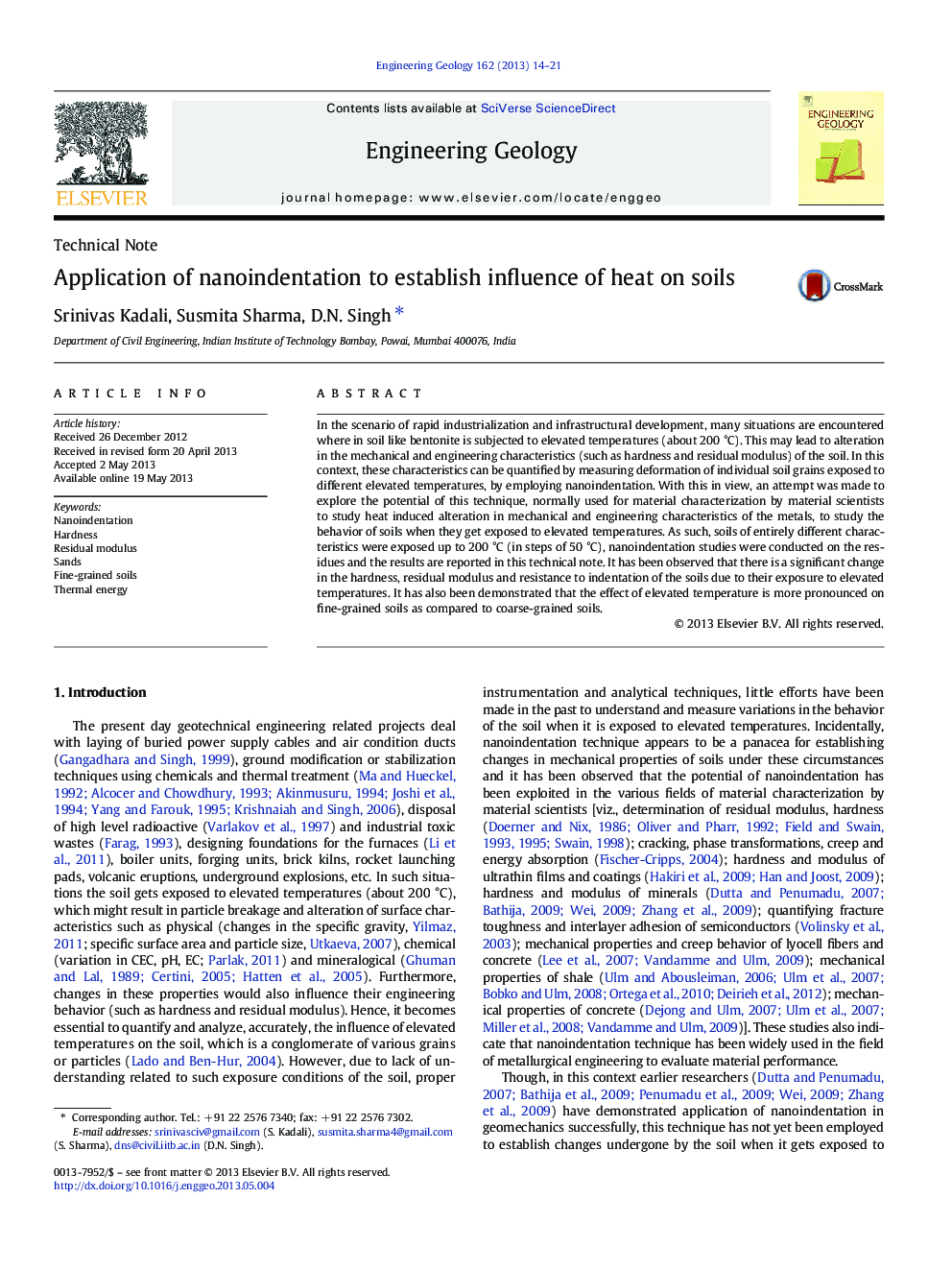| Article ID | Journal | Published Year | Pages | File Type |
|---|---|---|---|---|
| 6447965 | Engineering Geology | 2013 | 8 Pages |
Abstract
In the scenario of rapid industrialization and infrastructural development, many situations are encountered where in soil like bentonite is subjected to elevated temperatures (about 200 °C). This may lead to alteration in the mechanical and engineering characteristics (such as hardness and residual modulus) of the soil. In this context, these characteristics can be quantified by measuring deformation of individual soil grains exposed to different elevated temperatures, by employing nanoindentation. With this in view, an attempt was made to explore the potential of this technique, normally used for material characterization by material scientists to study heat induced alteration in mechanical and engineering characteristics of the metals, to study the behavior of soils when they get exposed to elevated temperatures. As such, soils of entirely different characteristics were exposed up to 200 °C (in steps of 50 °C), nanoindentation studies were conducted on the residues and the results are reported in this technical note. It has been observed that there is a significant change in the hardness, residual modulus and resistance to indentation of the soils due to their exposure to elevated temperatures. It has also been demonstrated that the effect of elevated temperature is more pronounced on fine-grained soils as compared to coarse-grained soils.
Related Topics
Physical Sciences and Engineering
Earth and Planetary Sciences
Geotechnical Engineering and Engineering Geology
Authors
Srinivas Kadali, Susmita Sharma, D.N. Singh,
